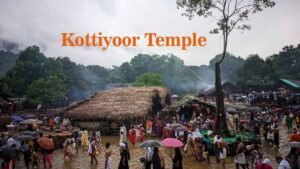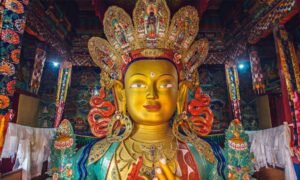India is a country known for its rich culture and vibrant traditions. One such tradition is the Rangoli tradition that have been deeply ingrained in the Indian culture . Rangoli, also known as “Alpana” or “Kolam”, is a decorative design that is created on the floors of homes, temples, and other buildings during festivals and special occasions. It is an ancient art form that has been passed down from generation to generation and is still widely practiced today.
What is Rangoli?
Rangoli is a form of sand painting that is typically created using a mix of colored powders, such as crushed rice, turmeric, and other natural pigments. The designs are usually geometric and symmetrical, featuring intricate patterns and motifs that are specific to different regions of India. The designs can be simple or complex, depending on the skill and experience of the artist.
The Significance of Rangoli Tradition:
Rangoli tradition has deep spiritual and cultural significance in India. It is considered to be a sacred art form that is believed to bring good luck and prosperity. It is also used as a form of decoration to welcome guests and to mark special occasions such as weddings, Diwali, and other festivals.
Creating a Rangoli:
Creating a Rangoli is an art form that requires skill, patience, and a steady hand. The process typically begins by drawing the design on the floor using a chalk or charcoal. The artist then uses a small spoon or a small broom to fill in the design with the colored powders. The final step is to add the finishing touches to the design, such as adding small dots or lines to enhance the overall look.
Rangoli tradition is a beautiful and meaningful custom that is an integral part of Indian culture. It is a reminder of the rich heritage and vibrant traditions of India, and it is an art form that continues to be passed down from generation to generation. Whether you are visiting India or simply want to learn more about this ancient art form, Rangoli is definitely worth exploring.
If you are someone who loves to explore the rich and diverse culture of India, then we warmly welcome you to visit our page Hidden Mantra. Our page is dedicated to showcasing the fascinating cultural traditions and rich heritage of India.


















